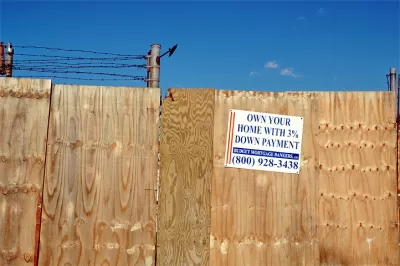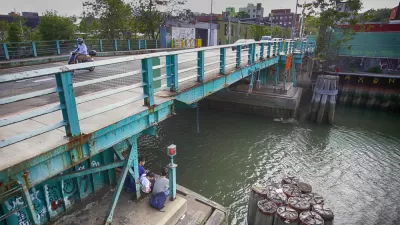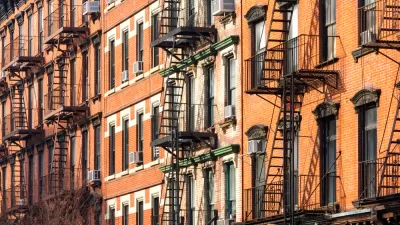As the supply of affordable housing in Gowanus continues to diminish, a new coalition demands that any rezoning plan fill the gaps.

As New York considers extending its rezoning efforts to the largely industrial neighborhood of Gowanus, non-profits have convened the Gowanus Neighborhood Coalition for Justice to represent the needs of low-income tenants and residents of public housing.
A new report by the nonprofit Fifth Avenue Committee found that 33 percent of housing in Gowanus is affordable — but those numbers are declining. Between 2007 and 2014, the number of rent-stabilized apartments dropped 22 percent in Gowanus, Boerum Hill, Carroll Garden and Park Slope thanks to market-rate development in those areas. That compares to a 6 percent drop citywide.
To counteract these trends, the coalition demands that "any rezoning, large land use action or public investment" be organized around five basic principles:
1. Advance racial and economic justice
2. Create real affordable housing and protect tenants from displacement
3. Promote environmental justice
4. Protect local businesses where we work and shop
5. Uplift the culture and community of long-time residents
Strategies to meet these goals—including workforce development, community policing, and racial desegregation—are outlined in the statement.
Gowanus community groups have advocated protections for longtime residents and small businesses since at least fall 2016, with the launch of the Bridging Gowanus community planning process.
FULL STORY: Gowanus lost 22% of its rent-stabilized housing between 2007 and 2014: study

Planetizen Federal Action Tracker
A weekly monitor of how Trump’s orders and actions are impacting planners and planning in America.

Congressman Proposes Bill to Rename DC Metro “Trump Train”
The Make Autorail Great Again Act would withhold federal funding to the system until the Washington Metropolitan Area Transit Authority (WMATA), rebrands as the Washington Metropolitan Authority for Greater Access (WMAGA).

The Simple Legislative Tool Transforming Vacant Downtowns
In California, Michigan and Georgia, an easy win is bringing dollars — and delight — back to city centers.

The Small South Asian Republic Going all in on EVs
Thanks to one simple policy change less than five years ago, 65% of new cars in this Himalayan country are now electric.

DC Backpedals on Bike Lane Protection, Swaps Barriers for Paint
Citing aesthetic concerns, the city is removing the concrete barriers and flexposts that once separated Arizona Avenue cyclists from motor vehicles.

In These Cities, Most New Housing is Under 441 Square Feet
With loosened restrictions on “micro-housing,” tiny units now make up as much as 66% of newly constructed housing.
Urban Design for Planners 1: Software Tools
This six-course series explores essential urban design concepts using open source software and equips planners with the tools they need to participate fully in the urban design process.
Planning for Universal Design
Learn the tools for implementing Universal Design in planning regulations.
Smith Gee Studio
City of Charlotte
City of Camden Redevelopment Agency
City of Astoria
Transportation Research & Education Center (TREC) at Portland State University
US High Speed Rail Association
City of Camden Redevelopment Agency
Municipality of Princeton (NJ)





























